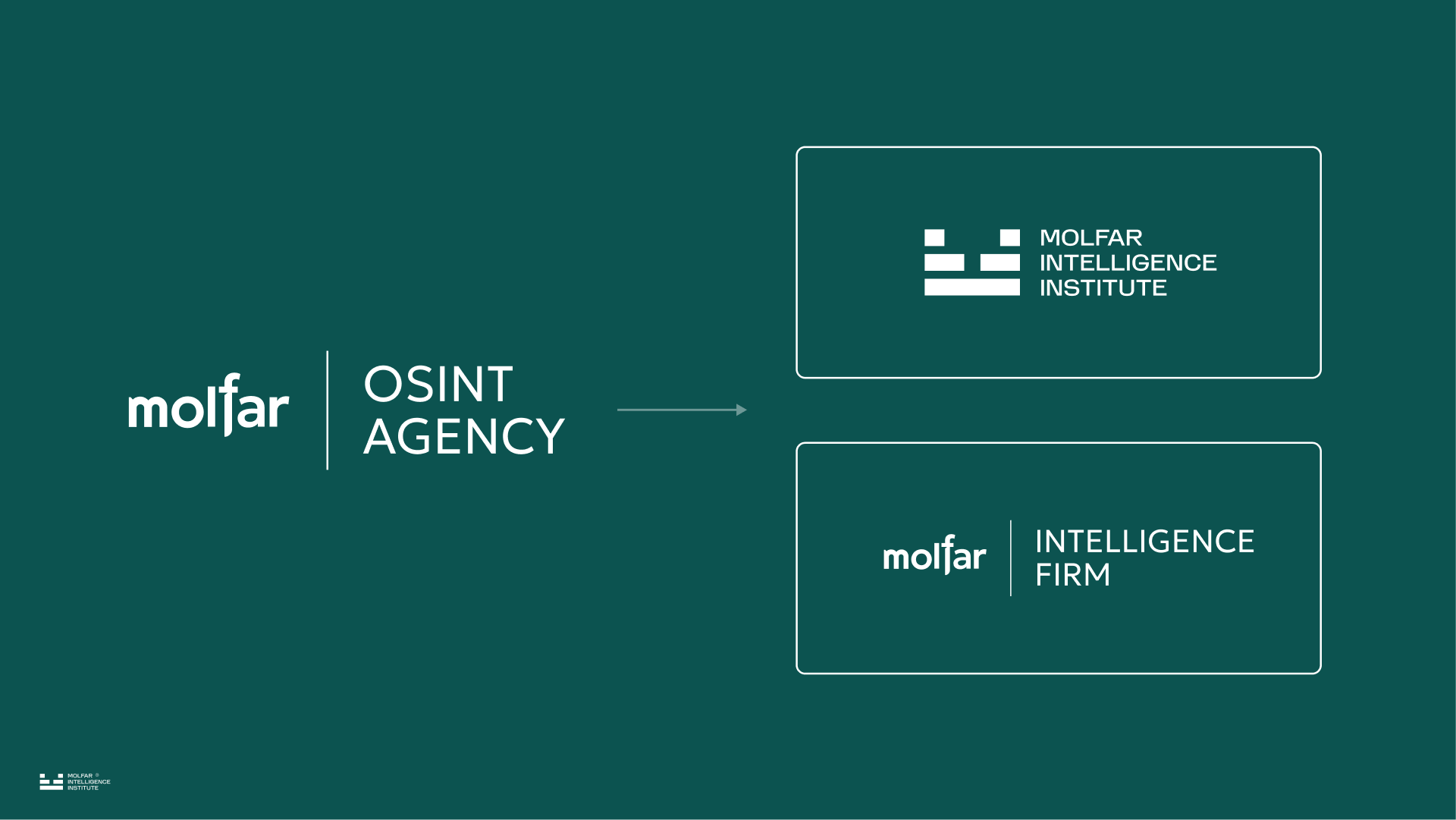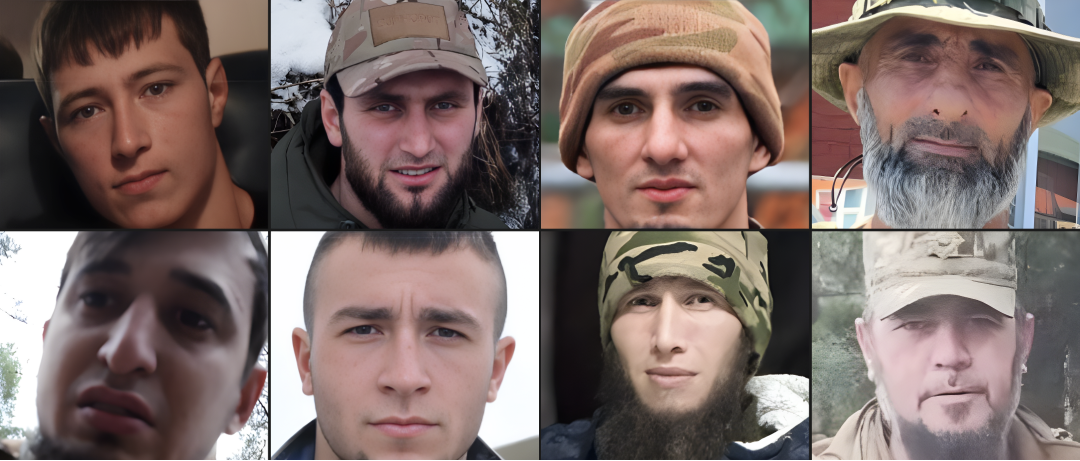23/02/2024
Ukraine is under siege. To the east of our country, there are Russian tanks, and to the west, Polish trucks are blocking the movement. But the Russians stand behind these trucks, just as behind the tanks with the letter Z. In this article, we will reveal one who initiated the blockade. His name is Rafal Mekler. He has been a long-haul truck driver transporting goods to Belarus and Russia since 2015. He occasionally engages in this, noting that "money won't earn itself."
At the same time, Rafal is confidently moving towards Polish politics. In his opinion, the "corridor of solidarity" created by the EU at the beginning of the Russian invasion should be closed. Ukraine's losses due to the blockade of checkpoints has amounted to 1 billion euros. The Polish side is also suffering losses. But it's not just about the economic component. The organizers of this strike are already blocking vehicles with drone parts and cargo for the Ukrainian Armed Forces.
Origin of the Blockade at the Polish Border
3,000 trucks are in queues at the Ukrainian border with Poland. The border blockade has been ongoing for a month. The President of Poland, Andrzej Duda, stated that the embargo is not a government decision. The decision to blockade was made by farmers, and they have the right to protest. However, Duda assured that agreements had been reached with the protesters. "Some time ago, we had protests by drivers, unions, and truck drivers' associations. And this protest was stopped due to negotiations with the authorities, as a result of agreements that were reached, in a tripartite formula of Poland-Ukraine-drivers." — Andrzej Duda, President of Poland.
In January 2024, the carriers' protest at the border was supposedly suspended until March 1, 2024, and an agreement was signed with the Polish Ministry of Infrastructure. The protesters' leader commented: "If we do not find solutions, we will return to the border. We are giving the ministry our trust. This is not capitulation but a strategic pause."
However, a few days later, the blockade was resumed and intensified. On February 20, protesters blocked the border crossings "Dorohusk – Yahodyn," "Hrebenne – Rava-Ruska," "Medyka – Shehyni," "Zosin–Ustyluh," "Dołhobyczów–Uhryniv," and "Korczowa – Krakovets."
The protesters' primary demand at the Polish-Ukrainian border is the return to the old system of permits for Ukrainian companies to transport goods, excluding humanitarian aid and cargo for the Ukrainian Armed Forces. Although, in fact, they are also blocking cargoes for the Ukrainian military. There are several other demands, but fulfilling them is practically impossible for Ukraine, considering the state of martial law.
Despite the local authorities revoking the permit to hold the protest, the border blockade continues. Attempts at dialogue between the governments of Poland, the EU, and Ukraine have yielded no results.
The Polish political force "Confederation" plays a key role in this blockade. This is a far-right party that unites several ideologically similar organizations. They call themselves defenders of the interests of ordinary Poles, farmers, and workers. In the Lublin Voivodeship, where the Polish-Ukrainian border is located on the east, Rafal Mekler leads "Confederation."
The "Confederation" party has an openly pro-Russian agenda. We will prove this further. Its representatives oppose sanctions against Russia. Rafal Mekler and numerous party members have already been added to the "Myrotvorec" list.
Rafal Mekler: Navigating Between Scrap and Pro-Russian Policy
Rafal Mekler: A Full Background Check
Social media:Facebook, VK, VK2 (blocked), VK3
His official webpage.
Rafal Mekler is a person with multifaceted interests and education. He was born in the small town of Radzyń Podlaski, near Lublin. He completed his bachelor's degree in tourism. In 2019, he studied programming at the postgraduate level. By 2023, he also obtained higher education in "Applied Rhetoric". Likely, he took a course at the Faculty of Philosophy of the Catholic University of Lublin (Katolicki Uniwersytet Lubelski), as Rafal regularly likes posts on the course's Facebook page (1, 2, 3, 4, 5, 6).
His bio indicates that he lives in the Niemce community of Lublin Voivodeship. Since May 2022, he has been following the queue group for customs to Belarus — "Queue Brest branch of RUE Beltamozhservice" (russian — Очередь Брестский филиал РУП Белтаможсервис) on Telegram. He also subscribes to a group about crossing the border (Brest). He has interests in military affairs, classical philosophy, and geopolitics (1, 2). He has photos on his Facebook with a rifle.
Until now, Rafal Mekler has not been a widely known politician. According to Rafal himself, he has been involved in political life since 2015, purportedly running for the Polish Sejm at that time. However, we found no confirmation of this.
Later, in 2018, he unsuccessfully ran in local elections for the "Ruch Narodowy" ("National Movement") party. This party is now part of a union of ultra-right Poles called "Konfederacja." The following year, Mekler led the "National Movement" lists in Lublin but failed to make it into mainstream politics again.
It's worth noting that the leader of the "National Movement" party, Janusz Korwin-Mikke, has made calls for the recognition of Crimea's occupation and even visited the annexed peninsula in 2015, where he met with Russian occupiers. This party is often referred to as pro-Russian (1, 2).
But it's not only political activity that connects Rafal with Russia. His business also has significant ties to the terrorist country. From 2016 to 2019, he traveled to Russia and Belarus (1, 2). Around the same time, he founded the company "Rema" (Rema spółka cywilna), which was engaged in the wholesale trade of waste and scrap. In 2019, Rafal posted advertisements for selling a large batch of "threaded ties, anchors, and rods not of Chinese manufacture."
Throughout 2022-2023, he independently made trips in a truck (1, 2, 3), commenting that "money won't earn itself".
Having already acquired capital from his business and transportation in Belarus and Russia, Mekler also decided to gain political capital. In April 2023, he registered the domain mekler.pl. This is his personal pre-election website.
In May 2023, Rafal Mekler participated in an informal meeting between Polish and Ukrainian transporters and representatives of transport associations. Later, he wrote on Facebook: "Participants are working on a solution that will satisfy both sides."
That same month, he started a campaign as a candidate from the political force "Confederation." Rafal appealed to his followers, asking for help finding locations for banners near significant highways and campaigners for "Confederation" (1, 2, 3, 4).
Rafal The Hatemonger
His political beliefs are exceptionally volatile. Initially, he writes that Russia is weak and will lose the war and that the Russian elites should remove Putin. Then he says that Ukraine should give up Donbas and Crimea. In October 2022, he changed direction again, asserting that Russia would lose. But finally, in August, he settled on a new view — in his opinion, Poland and Russia should improve their relations.
_1708701274.png)
Yet one trait remains unchanged in Rafal's beliefs — the incitement of hatred and hostility.
But one trait remains constant in Rafal's beliefs — the incitement of hatred and hostility.
In the 2019 elections, his platform stated that he was against LGBT and the adoption of children by such couples. He again emphasized the need to expand relations with Russia and its market in the same program. In 2019, he posted photos on Facebook (1, 2) from a rally supporting the LGBT community, commenting that he saw protesters from Ukraine there.
Rafal was one of the organizers of a march that ended with flares lighting in the square. According to comments, one of the balconies on the square caught fire because a flare was thrown into it.
Just like these flyers, he also fuels interethnic hostility. In July 2023, he participated in the "Lublin March of Memory of the Volhynia Massacre" (Lubelski Marsz Pamięci Rzezi Wołyńskiej). The event commemorated the victims of the Volhynia tragedy of 1943 (1, 2, 3), when, during the German occupation, there were mass ethnic cleansings of Poles in Volhynia. Shortly before the event, Rafal Mekler posted a photo on Facebook. In the caption, he demanded the exhumation of victims, punishment of the guilty, and the construction of a mausoleum. Several posters with such demands towards Ukraine contained the symbolism of the "Confederation" party.
We see how this political force exploits a painful historical event that affected two nations to gain political capital. However, the "Confederates" did not stop there, playing on the topic of the UPA. During their march, they distributed leaflets accusing the UIA (Ukrainian Insurgent Army) of killing 200,000 Poles, Jews, Armenians, Czechs, and Ukrainians who did not share the racial ideology of Stepan Bandera. This is a blatantly Russian narrative from the pages of the Kremlin's playbook. These and other propagandistic narratives have been debunked multiple times.
After this rally, Rafal Mekler secured a place among the top three candidates of "Confederation" in the Lublin district for the October elections to the Sejm.
"Confederation" and "National Movement"
UPD: The political force "Confederation" in Poland is a right-wing, Eurosceptic coalition that includes "New Hope", "National Movement", and "Confederation of the Polish Crown". All these political entities are conservative, adhering to a far-right ideology. They are also proponents of national Catholicism, monarchism, and minarchism (where the powers of the state are minimized). In the 2019 parliamentary elections, the party received 6.81% of the votes and was represented by 11 deputies in the Polish Sejm.
In fact, the "Confederation" alliance was founded in 2018. Several political forces, "KORWiN" (as of December 2023, "Nowa Nadzieja") and "National Movement," signed a coalition agreement. These political entities formed a single list for the European Parliament elections. The parties "National Movement", "New Hope", and "Confederation of the Polish Crown" created the "Confederation" coalition, which participates in all subsequent elections.
In 2021, "Confederation" and the "National Movement" actively campaigned for the lifting of quarantine restrictions, arguing that they were damaging to businesses, leading to the closure of service sector enterprises, and resulting in job losses. Mekler directly accused the Morawiecki government of failing to keep promises. Meanwhile, the Catholic Church advocated for the continuation of quarantine measures to save lives and protect people's health (the party's slogan is to follow the faith).
Janusz Korwin-Mikke
Janusz Ryszard Korwin-Mikke — FB, FB2, TW, TW2, TW3, TW4, Inst, YT), one of the founders and former leaders of "Confederation". This political party elected him as a deputy to the Sejm in 2019. He was a member of the Confederation's Leadership Council.
He visited Crimea in 2014 and interacted with the head of the Russian occupation administration, Aksyonov. During his time in the European Parliament, he displayed Nazi gestures and claimed that women were less intelligent than men. There are allegations that he collaborated with Russian intelligence services.
Among his most controversial claims: "Ukraine is the enemy, not Russia. They are currently voting for Bandera followers," and he also asserted that Ukraine has territorial claims against Poland. In April 2022, he expressed doubts about Russian atrocities in Ukraine, calling, in particular, the bombing of a hospital in Mariupol "staged." In June 2022, he called for "admiration of Russia," which, despite the supply of a large number of weapons to Ukrainians, "still defends itself with all its might."
Krzysztof Bosak
Date of birth: June 13, 1982, TW, FB (del), FB2, Public FB, Inst)
Since May 2023, he has led the "National Movement" party. In October of the same year, he won the election. He again became a member of the Sejm but for the Białystok district in the Podlaskie Voivodeship. On November 3, together with Rafal Mekler, they announced plans for protests to block the borders to carriers. On the 28th day of demonstrations, December 1, 2023, together with Mekler, he held a press conference where he declared that the Morawiecki government had one last chance to represent the interests of Poles instead of making concessions.
He called on Facebook to follow the page of the Polish ambassador to Russia, who described Russia as a country of spies and disinformation.
In 2019, he gave an interview to the pro-Russian media Sputnik, in which the interviewer was Leonid Sviridov, who was accused (1, 2) of spying for Russia. He is now banned from entering Poland. Sviridov was previously expelled from the Czech Republic for the same reasons.
In the interview, Krzysztof emphasized that the EU is taking away Poland's independence in courts and regulatory bodies, and it is necessary to seek rapprochement with Russia as an "anti-Europe."
In May 2022, the Polish Security Service blocked 12 Polish news websites as those spreading fakes and Russian propaganda, which Krzysztof Bosak denied regarding the site wrealu24.pl in his tweet. He was accused of political censorship, calling himself a fighter against Russian disinformation.
Vitold Slavomyr Tumanovych
Witold Sławomir Tumanowicz — 04.11.1986, FB, FB2, TW, Inst, TT).
A member of the Sejm from the "Confederation," one of the leaders of the political forces. He is also a member of the Main Board of the "National Movement" and its authorized representative at the elections. In 2023, he was elected to the Sejm as the number one member of the list of the "Confederation" in the Khelm district and received 456.9k votes (3.15%).
Witold is one of the organizers of the annual Independence March (Marsz Niepodległości). In 2023, he remains its vice president. The Independence March is considered a march of supporters of far-right ideology. Western media wrote about the participation of "fascists and other far-right extremists" in it (1, 2).
The Polish prosecutor's office investigated "slogans, symbols, and chants during these marches, which clearly indicate a connection with banned ideologies or incite national, racial, and religious differences." In 2013, during the march, participants burned the guard post of the Russian embassy in Warsaw. Commenting on this incident, Tumanovych disapproved of this attack but noted: "From myself, I will say that we would very much like to have good relations with Russia and its people."
Grzegorz Michal Braun
Grzegorz Michał Braun — 11.03.1967, Site, FB, TW, YT
The leader of the "Confederation of the Polish Crown" party, a member of the Leadership Council of the "Confederation," and a deputy of the Sejm. He was also a deputy of the previous Sejm.
In January 2022, Brown was the only Sejm deputy who voted against the resolution, expressing the Sejm's rejection of Russia's policy and support of Ukraine. In June 2022, he became a co-author of the "Call for Peace in Central Europe," in which he blamed Ukraine and NATO for Russia's full-scale invasion.
In November, Brown met with the organizers of the border blockade at the "Krakovets-Korchova" checkpoint. Later that month, during a speech in the Sejm, he expressed his support for the blockade participants, stating that they were defending Poland's sovereignty.
Pro-Russian Course of the "Confederation" Party, a Threat to Polish Security
Most of the politicians from the "Confederation" party are connected with Russia. They are the leading advocates of blocking the Ukrainian border. This political force is taking advantage of the current political situation to gain popularity. The "Confederates" present themselves as defenders of Polish interests, but in reality, they only protect Putin's interests.
The "Confederation" party is pro-Russian. Their leaders have repeatedly spoken out against sanctions on Moscow. Some have even visited Moscow or the occupied Crimea. In fact, this political force not only undermines trust in Poland's democratic institutions but also threatens its national security and sovereignty. Hopefully, Polish citizens will be able to critically assess the activities of this political force.




